Discover OVERSHOOT | Shrink Toward Abundance
OVERSHOOT | Shrink Toward Abundance

OVERSHOOT | Shrink Toward Abundance
Author: Population Balance
Subscribed: 196Played: 4,538Subscribe
Share
© Population Balance
Description
OVERSHOOT tackles today's interlocked social and ecological crises driven by humanity's excessive population and consumption. The podcast explores needed narrative, behavioral, and system shifts for recreating human life in balance with all life on Earth. With expert guests from wide-ranging disciplines, we examine the forces underlying overshoot: from patriarchal pronatalism that is fueling overpopulation, to growth-biased economic systems that lead to consumerism and social injustice, to the dominant worldview of human supremacy that subjugates animals and nature. Our vision of 'shrinking toward abundance' inspires us to seek pathways of transformation that go beyond technological fixes toward a new humanity that honors our interconnectedness with all beings.
Hosted by Nandita Bajaj and Alan Ware.
Hosted by Nandita Bajaj and Alan Ware.
100 Episodes
Reverse
We need an "abundance agenda" for nature. Ben Goldfarb, environmental journalist and author, challenges the techno-fix growth agenda that delivers an abundance of concrete and condos and a scarcity of wildness and wildlife. He urges us to replace extinction-prevention minimalism with a bolder commitment to restoring the abundance of keystone species, thriving ecosystems, and the freedom of wildlife to roam, migrate, and flourish. Highlights include: Why the so-called "abundance agenda" and its proposed weakening of environmental laws creates an abundance of concrete and a scarcity of nature; How the renewable energy abundance of solar and wind farms, and AI data centers, spells even greater destruction of wildlife habitat; How 40 million miles of global roads devastate ecosystems through roadkill, noise, and pollution - and why electric vehicles aren't the solution; Why the "development agenda", including the building of highways and induced demand for transportation, have been used as tools to subjugate the most marginalized human communities; Why the first rule of environmentally sound road building is asking whether a new road is needed at all; Why true abundance for wildlife depends on their ability to roam and migrate long distances, as shown by the Yellowstone-to-Yukon corridor; How beavers generate extraordinary ecological benefits for both wildlife and humans; Why restoring keystone species such as beavers, salmon, prairie dogs, and sea otters creates nature abundance by rebuilding biodiverse ecosystems; Why fish and marine creatures are undervalued and how their beauty and ecological importance emerge when we pay closer attention. See episode website for show notes, links, and transcript: https://www.populationbalance.org/podcast/ben-goldfarb OVERSHOOT | Shrink Toward Abundance OVERSHOOT tackles today's interlocked social and ecological crises driven by humanity's excessive population and consumption. The podcast explores needed narrative, behavioral, and system shifts for recreating human life in balance with all life on Earth. With expert guests from wide-ranging disciplines, we examine the forces underlying overshoot: from patriarchal pronatalism that is fueling overpopulation, to growth-biased economic systems that lead to consumerism and social injustice, to the dominant worldview of human supremacy that subjugates animals and nature. Our vision of shrinking toward abundance inspires us to seek pathways of transformation that go beyond technological fixes toward a new humanity that honors our interconnectedness with all beings. Hosted by Nandita Bajaj and Alan Ware. Brought to you by Population Balance. Subscribe to our newsletter here: https://www.populationbalance.org/subscribe Support our work with a one-time or monthly donation: https://www.populationbalance.org/donate Learn more at https://www.populationbalance.org Copyright 2025 Population Balance
Animal rights are the next frontier of civil rights. Jeff Kerr, PETA's longtime Chief Legal Officer, leads the organization's bold, precedent-setting legal strategy. From the "monkey selfie" case to freeing animals from experimentation and exploitative entertainment to exposing agribusiness humane-washing, Jeff fights to secure legal recognition of animals as beings with inviolable rights. Highlights include: How Jeff was inspired to get involved in animal law and become a lifelong vegan after attending an accidental lecture on animal rights; Why PETA's legal strategy rejects timidity and instead boldly confronts the legal system's speciesist hypocrisy head-on; How PETA uses bold, precedent-setting cases, like orcas at SeaWorld and a monkey's selfie copyright, to challenge the boundaries of animal personhood; How PETA has won cases against animal cruelty in factory farming and freed thousands of animals from exotic animal dealers; How PETA exposes humane-washing and fights ag-gag laws that conceal the violence of industrial animal agriculture; How PETA's advocacy helped end the use of elephants, big cats, and other animals in circuses and petting zoos; How PETA invokes free speech law to defend its right to communicate with monkeys tortured in laboratories; Why the foundation of animal rights lies in rejecting the notion that animal "otherness" justifies human domination. See episode website for show notes, links, and transcript: https://www.populationbalance.org/podcast/jeff-kerr OVERSHOOT | Shrink Toward Abundance OVERSHOOT tackles today's interlocked social and ecological crises driven by humanity's excessive population and consumption. The podcast explores needed narrative, behavioral, and system shifts for recreating human life in balance with all life on Earth. With expert guests from wide-ranging disciplines, we examine the forces underlying overshoot: from patriarchal pronatalism that is fueling overpopulation, to growth-biased economic systems that lead to consumerism and social injustice, to the dominant worldview of human supremacy that subjugates animals and nature. Our vision of shrinking toward abundance inspires us to seek pathways of transformation that go beyond technological fixes toward a new humanity that honors our interconnectedness with all beings. Hosted by Nandita Bajaj and Alan Ware. Brought to you by Population Balance. Subscribe to our newsletter here: https://www.populationbalance.org/subscribe Support our work with a one-time or monthly donation: https://www.populationbalance.org/donate Learn more at https://www.populationbalance.org Copyright 2025 Population Balance
The one-child family is becoming the fastest-growing family size in many countries. Social psychologist Susan Newman, author of Just One, shares the abundant research challenging long-held myths that only children are lonely, selfish, or spoiled, and why the growing popularity of one-child families reflects greater parental and child satisfaction and ecological awareness. Highlights include: How Susan's experience parenting four stepchildren earlier in her life and one biological child later in life shaped her understanding of one-child families; Why negative stereotypes of only children as spoiled or lonely stemmed from flawed early research and cultural bias; What modern cross-cultural studies reveal about only children being as well-adjusted and socially capable as those with siblings; Why mothers of only children often report higher happiness and lower stress than mothers of larger families; Why parental influence and home environment matter more to child development than the number of siblings; How the one-child family has become normalized worldwide amid rising costs, alternative life opportunities, and climate anxiety; Why pronatalist government policies are failing to reverse declining birth rates; What parents of only children can do to foster independence and realistic expectations for their child; Why the choice to have one child is increasingly pursued as a proactive, deliberate, values-based decision rather than a perceived limitation. See episode website for show notes, links, and transcript: https://www.populationbalance.org/podcast/susan-newman OVERSHOOT | Shrink Toward Abundance OVERSHOOT tackles today's interlocked social and ecological crises driven by humanity's excessive population and consumption. The podcast explores needed narrative, behavioral, and system shifts for recreating human life in balance with all life on Earth. With expert guests from wide-ranging disciplines, we examine the forces underlying overshoot: from patriarchal pronatalism that is fueling overpopulation, to growth-biased economic systems that lead to consumerism and social injustice, to the dominant worldview of human supremacy that subjugates animals and nature. Our vision of shrinking toward abundance inspires us to seek pathways of transformation that go beyond technological fixes toward a new humanity that honors our interconnectedness with all beings. Hosted by Nandita Bajaj and Alan Ware. Brought to you by Population Balance. Subscribe to our newsletter here: https://www.populationbalance.org/subscribe Support our work with a one-time or monthly donation: https://www.populationbalance.org/donate Learn more at https://www.populationbalance.org Copyright 2025 Population Balance
A global war against animals is driven by capitalist exploitation and profit. Dinesh Wadiwel, author of Animals and Capital and The War Against Animals, shows how capitalism treats animals as commodities, raw materials, and self-reproducing labor. He advocates for an anti-capitalist animal politics that builds alliances with social justice movements to advance both animal and human justice. Highlights include: Why the concept of 'hierarchical anthropocentrism' is essential in revealing how human-centered thinking and systems of hierarchy together justify domination over both animals and marginalized human groups; How 'hierarchical anthropocentrism' spread globally through colonialism with its racial and ethnic hierarchies and was then exponentially increased in its destructiveness by global capitalism; How human relationships with animals - from industrial farming to pet ownership - reflect human domination and control of animals; How we are waging a war against animals, even as we try to hide the reality of industrial animal killing through consumer distance and sanitized language; Why animals' physical resistance to human violence is politically significant and doesn't rely on moral appeals to animal sentience; Why the rise of utilitarianism within animal rights philosophical theory coincides with the rise of neoliberal capitalism; How animal agriculture has grown so large - not because of human need - but to serve capitalist profits by stimulating demand for cheaply overproduced animal products; How capitalism sustains animal exploitation by treating animals as laborers that reproduce themselves as profitable commodities; Why an effective animal rights movement must have a structural critique of capitalism that allows it to build alliances with social justice groups, such as labor and indigenous rights, in order to resist the capitalist structures that oppress both animals and people; Why the lack of a theory of the state weakens animal advocacy by leading activists to overestimate the role of liberal democracies and legal reform, even as both animals and many humans experience increasingly totalitarian relations to the state. See episode website for show notes, links, and transcript: https://www.populationbalance.org/podcast/dinesh-wadiwel OVERSHOOT | Shrink Toward Abundance OVERSHOOT tackles today's interlocked social and ecological crises driven by humanity's excessive population and consumption. The podcast explores needed narrative, behavioral, and system shifts for recreating human life in balance with all life on Earth. With expert guests from wide-ranging disciplines, we examine the forces underlying overshoot: from patriarchal pronatalism that is fueling overpopulation, to growth-biased economic systems that lead to consumerism and social injustice, to the dominant worldview of human supremacy that subjugates animals and nature. Our vision of shrinking toward abundance inspires us to seek pathways of transformation that go beyond technological fixes toward a new humanity that honors our interconnectedness with all beings. Hosted by Nandita Bajaj and Alan Ware. Brought to you by Population Balance. Subscribe to our newsletter here: https://www.populationbalance.org/subscribe Support our work with a one-time or monthly donation: https://www.populationbalance.org/donate Learn more at https://www.populationbalance.org Copyright 2025 Population Balance
A dystopian fusion of human and machine is being pushed on us by a big tech elite. Michael D.B. Harvey, author of The Age of Humachines: Big Tech and the Battle for Humanity's Future, warns of the 'humachinator' worldview that weds unrestrained technology and capitalism - and what we might do to reclaim a future rooted in democracy and ecological balance. Highlights include: How the 'humachine' blurs the line between human and machine, technologizing everything and everyone; How the history of scientism and empiricism has led humachinators to imagine the brain as a computer and the body as a machine and the belief that engineering can control humanity, biophysical laws, and even death itself; How big tech oligarchs merge unfettered science with unfettered capitalism to produce 'ultrascience'; Why big tech oligarchs' faith in unrestrained technology and markets has merged into 'ontocapitalism' - a form of capitalism that commodifies nature and all human experience; How humachinators use 'tricknology' to hype their technologies and get us, especially the young, addicted to their products; What the five types of humachination are: cognitive, emotional, relational, the mechanized human, and a totalizing daily environment where our lives are surveilled, interpreted, and mediated by machines; How the extreme individualism in Silicon Valley undermines democracy and collective decision-making; How the 'G' word, growth, is behind all the humachinators' actions and dreams; Why our relationship with technology is ultimately political, not inevitable, and that we need to resist big tech oligarchs who profit most from unrestricted technology; Why we need to move from CIMENT values (competitiveness, individualism, materialism, elitism, nationalism, and technologism) to CANDID values (cooperative, altruistic, non-materialist, democratic, internationalist, and deferential to nature) - and how we might shift those values. See episode website for show notes, links, and transcript: https://www.populationbalance.org/podcast/michael-db-harvey OVERSHOOT | Shrink Toward Abundance OVERSHOOT tackles today's interlocked social and ecological crises driven by humanity's excessive population and consumption. The podcast explores needed narrative, behavioral, and system shifts for recreating human life in balance with all life on Earth. With expert guests from wide-ranging disciplines, we examine the forces underlying overshoot: from patriarchal pronatalism that is fueling overpopulation, to growth-biased economic systems that lead to consumerism and social injustice, to the dominant worldview of human supremacy that subjugates animals and nature. Our vision of shrinking toward abundance inspires us to seek pathways of transformation that go beyond technological fixes toward a new humanity that honors our interconnectedness with all beings. Hosted by Nandita Bajaj and Alan Ware. Brought to you by Population Balance. Subscribe to our newsletter here: https://www.populationbalance.org/subscribe Support our work with a one-time or monthly donation: https://www.populationbalance.org/donate Learn more at https://www.populationbalance.org Copyright 2025 Population Balance
Across India and around the world, communities are resisting destruction and reclaiming their right to shape their own futures. Shrishtee Bajpai, researcher and activist with the Global Tapestry of Alternatives, reveals how local struggles for self-determination connect across cultures and what is being done to weave a 'pluriverse' of possibilities rooted in social and ecological justice. Highlights include: How Shrishtee's upbringing as an upper caste, urban Indian girl living along the river Ganga shaped her search for personal freedom and ecological and social justice; How her work with Indian village communities resisting ecological and social destruction helped her connect academic critiques of feminism and development to lived realities; How she challenges oppressive systems while also interrogating her own privilege and colonial inheritance; Why creating a 'pluriverse' of diverse, locally-rooted alternatives is essential to move beyond the dominant development model and progress narrative; Why the Global Tapestry of Alternatives supports 'radiating out' values and lessons rather than 'scaling up', which risks destroying the important nuance of local context; Why strengthening communities' imagination, confidence, and self-determination is central to her work; Why the Rights of Nature movement must de-emphasize the perspectives of NGOs and governments and center the voice of local communities with long-standing connections to their environments; How profound experiences with the more-than-human world and with story-based community ritual sustain her work. See episode website for show notes, links, and transcript: https://www.populationbalance.org/podcast/shrishtee-bajpai OVERSHOOT | Shrink Toward Abundance OVERSHOOT tackles today's interlocked social and ecological crises driven by humanity's excessive population and consumption. The podcast explores needed narrative, behavioral, and system shifts for recreating human life in balance with all life on Earth. With expert guests from wide-ranging disciplines, we examine the forces underlying overshoot: from patriarchal pronatalism that is fueling overpopulation, to growth-biased economic systems that lead to consumerism and social injustice, to the dominant worldview of human supremacy that subjugates animals and nature. Our vision of shrinking toward abundance inspires us to seek pathways of transformation that go beyond technological fixes toward a new humanity that honors our interconnectedness with all beings. Hosted by Nandita Bajaj and Alan Ware. Brought to you by Population Balance. Subscribe to our newsletter here: https://www.populationbalance.org/subscribe Support our work with a one-time or monthly donation: https://www.populationbalance.org/donate Learn more at https://www.populationbalance.org Copyright 2025 Population Balance
For 5,000 years civilizations have told themselves stories of progress. Today, the progress myth has become humanity's most dangerous illusion. Samuel Miller McDonald, geographer and author of Progress: A History of Humanity's Worst Idea, illuminates the destructive lineage of progress, why these myths endure, how they enable socially and ecologically parasitic societies, and what values might guide us beyond them. Highlights include: How narratives of progress have persisted from Mesopotamia to today, and how those narratives have persisted even as the means of material subsistence and political economy have changed enormously over time; How the progress narratives of today are primarily divided into four camps: techno-liberal, Silicon Valley's android kingdom, the social justice vanguard, and right-wing grifters and political opportunists; How the ecological, energy exchange relationships of mutualism, commensalism, and parasitism offer a framework for understanding human societies' concrete and abstract energy capture historically and in the present; Why long-lived societies tend to be mutualistic or commensalistic with animistic, biophilic worldviews and egalitarian practices, while parasitic societies collapse due to the ecological and social destruction they cause; How parasitism has evolved across three broad ages of mythical, secular, and today's economistic, fossil-fueled, and globalized capitalist network; Why neoliberalism, the latest economistic project, is so resilient - and how it prioritizes economic growth over political rights, co-opts reformist movements and exploits the human cooperative impulse while entrenching corporate power at the expense of democracy; Why elite fantasies of transhumanism and off-planet escape are dangerous and delusional extensions of parasitic growthism; What more mutualistic and commensalistic alternative paths forward might look like, from agroecological local systems and rewilding to indigenous land rights, fossil fuel bans, rejecting AI, and class struggle - all guided by values of biophilia, fairness, and restraint. See episode website for show notes, links, and transcript: https://www.populationbalance.org/podcast/samuel-miller-mcdonald-2 OVERSHOOT | Shrink Toward Abundance OVERSHOOT tackles today's interlocked social and ecological crises driven by humanity's excessive population and consumption. The podcast explores needed narrative, behavioral, and system shifts for recreating human life in balance with all life on Earth. With expert guests from wide-ranging disciplines, we examine the forces underlying overshoot: from patriarchal pronatalism that is fueling overpopulation, to growth-biased economic systems that lead to consumerism and social injustice, to the dominant worldview of human supremacy that subjugates animals and nature. Our vision of shrinking toward abundance inspires us to seek pathways of transformation that go beyond technological fixes toward a new humanity that honors our interconnectedness with all beings. Hosted by Nandita Bajaj and Alan Ware. Brought to you by Population Balance. Subscribe to our newsletter here: https://www.populationbalance.org/subscribe Support our work with a one-time or monthly donation: https://www.populationbalance.org/donate Learn more at https://www.populationbalance.org Copyright 2025 Population Balance
Modern techno-industrial civilization is running up against the law of diminishing returns - and societal collapse is inevitable. B, author of The Honest Sorcerer blog, reveals why our civilizational complexity carries the seeds of its own destruction. Highlights include: What led B (who also shares his reasons for remaining anonymous) from believing modern civilization would persist for centuries to recognizing collapse as inevitable; Why diminishing returns on energy, materials, and innovation are central to the collapse of complex societies; Why societal collapse is a long process taking place over decades or centuries rather than a single event, unfolding as a stair-step decline with sharp drops in complexity followed by brief recoveries and stabilizations; Why declining fertility rates should be embraced as a natural adjustment to overpopulation, rather than a cause for elite-driven panic; Why collapse will be liberating for some, devastating for most, and why adaptation to a simpler life will favor poorer communities that already know how to live simply; How and when to strategically leverage large-scale political change, and the role writers, thinkers, and local action can play in helping people face collapse more calmly . See episode website for show notes, links, and transcript: https://www.populationbalance.org/podcast/the-honest-sorcerer OVERSHOOT | Shrink Toward Abundance OVERSHOOT tackles today's interlocked social and ecological crises driven by humanity's excessive population and consumption. The podcast explores needed narrative, behavioral, and system shifts for recreating human life in balance with all life on Earth. With expert guests from wide-ranging disciplines, we examine the forces underlying overshoot: from patriarchal pronatalism that is fueling overpopulation, to growth-biased economic systems that lead to consumerism and social injustice, to the dominant worldview of human supremacy that subjugates animals and nature. Our vision of shrinking toward abundance inspires us to seek pathways of transformation that go beyond technological fixes toward a new humanity that honors our interconnectedness with all beings. Hosted by Nandita Bajaj and Alan Ware. Brought to you by Population Balance. Subscribe to our newsletter here: https://www.populationbalance.org/subscribe Support our work with a one-time or monthly donation: https://www.populationbalance.org/donate Learn more at https://www.populationbalance.org Copyright 2025 Population Balance
From center-left Ezra Klein to right-wing Matt Walsh, the fertility panic is an elite fixation that is rooted in a human supremacist worldview and a deep fear of slowing growth. Samuel Miller McDonald, geographer and author of the book Progress: A History of Humanity's Worst Idea, exposes how our parasitic relationship with Earth lies at the core of ecological overshoot, and why resisting authoritarianism in an age of contraction means embracing a pluralistic and just degrowth vision. Highlights include: Why our modern relationship to Earth is fundamentally parasitic - regardless of whether societies are capitalist or socialist; How media commentators resist degrowth in various stages and how their rejection reveals their lack of maturity in accepting responsibility for the ecological destruction we are causing; Why degrowth policies and practices should emphasize pluralistic, context-specific approaches rooted in democratic participation, not top-down master plans; Why many degrowth proponents have been dismissive of population concerns; Why the political right is more poised to benefit from ongoing economic contraction and why the liberal 'abundance agenda' needs to be resisted; Why conviviality and class solidarity are key to a successful degrowth transition and how modern societies undermine them; Why core values like fairness, autonomy, and ecological integrity will be essential in resisting authoritarians' claims to power in the coming challenging decades. See episode website for show notes, links, and transcript: https://www.populationbalance.org/podcast/samuel-miller-mcdonald OVERSHOOT | Shrink Toward Abundance OVERSHOOT tackles today's interlocked social and ecological crises driven by humanity's excessive population and consumption. The podcast explores needed narrative, behavioral, and system shifts for recreating human life in balance with all life on Earth. With expert guests from wide-ranging disciplines, we examine the forces underlying overshoot: from patriarchal pronatalism that is fueling overpopulation, to growth-biased economic systems that lead to consumerism and social injustice, to the dominant worldview of human supremacy that subjugates animals and nature. Our vision of shrinking toward abundance inspires us to seek pathways of transformation that go beyond technological fixes toward a new humanity that honors our interconnectedness with all beings. Hosted by Nandita Bajaj and Alan Ware. Brought to you by Population Balance. Subscribe to our newsletter here: https://www.populationbalance.org/subscribe Support our work with a one-time or monthly donation: https://www.populationbalance.org/donate Learn more at https://www.populationbalance.org Copyright 2025 Population Balance
In vitro fertilization (IVF) is often seen as a triumph of reproductive freedom, but its origins are deeply entangled with patriarchy, pronatalism, and eugenics. Pamela Mahoney Tsigdinos, IVF survivor and author of Silent Sorority and Finally Heard, discusses how under-regulation and cultural obsession with biological motherhood allows the multi-billion dollar fertility industry to obscure the truth about its low success rates and the trauma it causes. Highlights include: What the IVF process entails how time-consuming, expensive, and emotionally and physically wrenching it is; How John Rock, pioneer of the birth control pill, was motivated by a religiously pronatalist desire to help specifically Catholic women conceive, and how IVF pioneer, Patrick Steptoe, performed experimental gynecological procedures on hundreds of women without their consent; How the multi-billion dollar fertility industry both benefits from and exacerbates pronatalism and exploits the hope of vulnerable patients, who are often treated as commodities, through aggressive marketing, unproven add-on services, and cherry-picked success rates; How Pamela found deep emotional connection with online communities around the world - the 'silent sorority' of IVF survivors; How pronatalist culture magnifies the emotional pain for IVF patients, surrounding them with pronatalist expectations and deeply rooted stereotypes, especially against women without children; Why feminist empowerment rhetoric can backfire if it uncritically promotes fertility services without acknowledging the exploitative practices and emotional toll experienced by the many female patients in the fertility industry; How individuals struggling with infertility can make better informed decisions about their available options. See episode website for show notes, links, and transcript: https://www.populationbalance.org/podcast/pamela-mahoney-tsigdinos OVERSHOOT | Shrink Toward Abundance OVERSHOOT tackles today's interlocked social and ecological crises driven by humanity's excessive population and consumption. The podcast explores needed narrative, behavioral, and system shifts for recreating human life in balance with all life on Earth. With expert guests from wide-ranging disciplines, we examine the forces underlying overshoot: from patriarchal pronatalism that is fueling overpopulation, to growth-biased economic systems that lead to consumerism and social injustice, to the dominant worldview of human supremacy that subjugates animals and nature. Our vision of shrinking toward abundance inspires us to seek pathways of transformation that go beyond technological fixes toward a new humanity that honors our interconnectedness with all beings. Hosted by Nandita Bajaj and Alan Ware. Brought to you by Population Balance. Subscribe to our newsletter here: https://www.populationbalance.org/subscribe Support our work with a one-time or monthly donation: https://www.populationbalance.org/donate Learn more at https://www.populationbalance.org Copyright 2025 Population Balance
The meat industry and its defenders promise ethical consumption and sustainable farming, but animal agriculture fuels ecological destruction, entrenches human supremacy, and masks cruelty with comforting myths. John Sanbonmatsu, philosopher and author of The Omnivore's Deception, shatters the myths of "humane meat" and the 'naturalness' of eating meat, and explains why abolishing the animal economy is essential to living an ethical human life. Highlights include: Why growing up as the child of a Jewish mother and Japanese-American father in the U.S. sensitized John to bullying and injustice - against both human and nonhuman animals; Why the origins of human domination over animals are rooted in patriarchy and an ancient human estrangement from animals, and reinforced today by a toxic nexus of masculinity, human supremacy, neoliberal capitalism, and pronatalism; Why focusing only on factory farming misses the fundamental problem of human domination of animals and the planet - and how books like Michael Pollan's The Omnivore's Dilemma and the new American pastoral ethos perpetuate myths of so-called ethical meat while attacking the animal rights movement; Why justifying meat-eating as "natural" is ethically bankrupt - on par with past appeals to nature to justify slavery or denying women's rights - and how vegans and vegetarians provoke defensive ridicule because they reveal uncomfortable truths; Why the flood of scientific studies on animal cognition and emotion hasn't changed behavior - and how cultural fascination with AI and plant consciousness distracts from our brutal treatment of fully sentient animals; Why bad faith - our self-deception about how we treat animals - is the most destructive force preventing moral progress, and why what we're doing to animals deserves to be called 'evil'; How empathy, an evolved trait we share with animals and desperately need to nurture, is being eroded by increasing social disconnection and anti-empathy tech bro ideologies; Why lab meat, also known as 'clean meat', is not the solution to speciesism and human supremacism and consuming our way to animal liberation is a delusion; Why the animal rights movement is being undermined by the money pouring into utilitarian effective altruism and "realistic" approaches - when true compassion demands not animal welfarism, but the abolition of animal exploitation and a direct challenge to the entrenched power structures that prevent moral progress. See episode website for show notes, links, and transcript: https://www.populationbalance.org/podcast/john-sanbonmatsu OVERSHOOT | Shrink Toward Abundance OVERSHOOT tackles today's interlocked social and ecological crises driven by humanity's excessive population and consumption. The podcast explores needed narrative, behavioral, and system shifts for recreating human life in balance with all life on Earth. With expert guests from wide-ranging disciplines, we examine the forces underlying overshoot: from patriarchal pronatalism that is fueling overpopulation, to growth-biased economic systems that lead to consumerism and social injustice, to the dominant worldview of human supremacy that subjugates animals and nature. Our vision of shrinking toward abundance inspires us to seek pathways of transformation that go beyond technological fixes toward a new humanity that honors our interconnectedness with all beings. Hosted by Nandita Bajaj and Alan Ware. Brought to you by Population Balance. Subscribe to our newsletter here: https://www.populationbalance.org/subscribe Support our work with a one-time or monthly donation: https://www.populationbalance.org/donate Learn more at https://www.populationbalance.org Copyright 2025 Population Balance
The nuclear industry and its boosters promise clean, abundant energy, but nuclear power delivers expensive electricity while posing catastrophic radiation risks and a constant threat of nuclear war. M. V. Ramana, physicist and author of Nuclear is Not the Solution, explains why respecting the limits of the biosphere means reducing our energy use and rejecting elites' push for endless growth. Highlights include: Why nuclear energy is inherently risky due to its complex, tightly coupled systems that are prone to catastrophic failures that can't be predicted or prevented; Why nuclear waste poses long-term threats to all life by remaining dangerously radioactive for thousands of years, with no safe, permanent disposal solution and frequent storage failures; Why nuclear energy is expensive, with projects routinely running over budget and behind schedule; Why the expansion of nuclear energy increases the likelihood of devastating nuclear war; How climate change and war-time accidents or direct targeting increase the risks of nuclear catastrophe; Why nuclear Uranium mining and its wastes often require 'sacrifice zones' that are disproportionately found in indigenous land and less powerful communities; How the nuclear industry shapes nuclear policy and debate by capturing regulators and creating an energy 'panic' based on one-sided narratives that block democratic discussion and scrutiny; Why, despite the hype from the nuclear industry, new nuclear plant designs like small modular reactors are subject to the same cost and safety concerns as the old designs; Why the best answer to dealing with renewable energy's variability is not nuclear or fossil fuels but reducing demand; Why renewable energy is no panacea for planetary overshoot and why we need to have a broadly democratic conversation about living within the limits of the planet. See episode website for show notes, links, and transcript: https://www.populationbalance.org/podcast/mv-ramana OVERSHOOT | Shrink Toward Abundance OVERSHOOT tackles today's interlocked social and ecological crises driven by humanity's excessive population and consumption. The podcast explores needed narrative, behavioral, and system shifts for recreating human life in balance with all life on Earth. With expert guests from wide-ranging disciplines, we examine the forces underlying overshoot: from patriarchal pronatalism that is fueling overpopulation, to growth-biased economic systems that lead to consumerism and social injustice, to the dominant worldview of human supremacy that subjugates animals and nature. Our vision of shrinking toward abundance inspires us to seek pathways of transformation that go beyond technological fixes toward a new humanity that honors our interconnectedness with all beings. Hosted by Nandita Bajaj and Alan Ware. Brought to you by Population Balance. Subscribe to our newsletter here: https://www.populationbalance.org/subscribe Learn more at https://www.populationbalance.org Copyright 2025 Population Balance
The world is colliding with the ecological limits of growth - and mainstream economics is still looking the other way. Peter Victor, ecological economist and author of Escape from Overshoot, joins us. Highlights include: How 'the pre-analytic vision' of ecological economics, unlike mainstream economics, recognizes that all economic activity is embedded in the biosphere of Earth; Why population growth has been the main driver of ecological overshoot in recent decades; Why markets routinely fail to protect public goods like clean air and water and often produce socially and ecologically unjust outcomes without government intervention; Why the adjectives put in front of the word 'growth', like 'inclusive growth' or 'green growth', reveal how the goal of economic growth is failing on a wide range of dimensions; Why the goal of green growth is delusional, as emissions must fall by 10 percent annually for 30 years in a row to meet climate goals - something no country has ever achieved; Why the money metric of valuing nature is woefully inadequate and why we should embrace multiple perspectives that recognize the sacred and relational dimensions of our relationships to nature; Why mainstream economists' assumption of infinite wants is misguided and why we should focus instead on moderating our material wants to achieve an abundance of joy and wellbeing. See episode website for show notes, links, and transcript: https://www.populationbalance.org/podcast/peter-victor OVERSHOOT | Shrink Toward Abundance OVERSHOOT tackles today's interlocked social and ecological crises driven by humanity's excessive population and consumption. The podcast explores needed narrative, behavioral, and system shifts for recreating human life in balance with all life on Earth. With expert guests from wide-ranging disciplines, we examine the forces underlying overshoot: from patriarchal pronatalism that is fueling overpopulation, to growth-biased economic systems that lead to consumerism and social injustice, to the dominant worldview of human supremacy that subjugates animals and nature. Our vision of shrinking toward abundance inspires us to seek pathways of transformation that go beyond technological fixes toward a new humanity that honors our interconnectedness with all beings. Hosted by Nandita Bajaj and Alan Ware. Brought to you by Population Balance. Subscribe to our newsletter here: https://www.populationbalance.org/subscribe Learn more at populationbalance.org Copyright 2025 Population Balance
Academy Award-winning vegan filmmaker and former National Geographic photographer Louie Psihoyos joins us to share how he is using the power of storytelling to spark transformation for animal rights, human health, and environmental conservation. Highlights include: How The Cove, his Oscar-wining documentary and the first documentary to sweep all the film guilds, inspired activism that helped reduce dolphin and porpoise slaughter in Japan by over 90%; How his team's audacious projection events of endangered species on iconic buildings including The Empire State Building, The United Nations and The Vatican for their film Racing Extinction, received over 5.4 billion media views and led to laws that protect some of Earth's most endangered animals; How his third film, The Game Changers, a film about plant-based super athletes that exposes the myth that meat is necessary for protein, strength, and optimal health, triggered a 350% spike in online searches within a month of premiering on Netflix; What his Netflix Series, You Are What You Eat: A Twin Experiment, uncovered about the 8-week health benefits of plant-based eating, and how the results went viral; His most recent film Mission: Joy a buddy film starring his Holiness, The Dalai Lama and Archbishop Desmond Tutu about how to find joy in a world of sorrow has been seen by 10's of millions of people around the globe; Where Louie's focus is turning next: a new film exposing the destructive health impacts of plastic. See episode website for show notes, links, and transcript: https://www.populationbalance.org/podcast/louie-psihoyos OVERSHOOT | Shrink Toward Abundance OVERSHOOT tackles today's interlocked social and ecological crises driven by humanity's excessive population and consumption. The podcast explores needed narrative, behavioral, and system shifts for recreating human life in balance with all life on Earth. With expert guests from wide-ranging disciplines, we examine the forces underlying overshoot: from patriarchal pronatalism that is fueling overpopulation, to growth-biased economic systems that lead to consumerism and social injustice, to the dominant worldview of human supremacy that subjugates animals and nature. Our vision of shrinking toward abundance inspires us to seek pathways of transformation that go beyond technological fixes toward a new humanity that honors our interconnectedness with all beings. Hosted by Nandita Bajaj and Alan Ware. Brought to you by Population Balance. Learn more at populationbalance.org Copyright 2025 Population Balance
Modernity is dying within and around us, and we need to face that death with courage and compassion. Vanessa de Oliveira Andreotti, author of Hospicing Modernity, joins us. Highlights include: How her mixed Indigenous and German heritage in Brazil exposed her to a complex mix of love and violence, deepening her understanding of how socialization and education can perpetuate harmful relationships; Why the 'house of modernity', which is built on a foundation of humanity's separation from the rest of nature, is structured to ultimately fail; Why we need to 'hospice modernity' both within and around us, without feeling overwhelmed or rushing for quick fixes, while making space for something much larger to emerge; Why we need to compost the 'pedestal' sense of agency from modernity and its elevated sense of certainty and subject-object relationships and embrace a more intersubjective mycelial sense of agency; Why 'outgrowing modernity' will require us to prepare for a 'well-died death' and a greater sense of emotional sobriety, relational maturity, intellectual discernment, and interspecies and intergenerational responsibility. See episode website for show notes, links, and transcript: https://www.populationbalance.org/podcast/vanessa-andreotti OVERSHOOT | Shrink Toward Abundance OVERSHOOT tackles today's interlocked social and ecological crises driven by humanity's excessive population and consumption. The podcast explores needed narrative, behavioral, and system shifts for recreating human life in balance with all life on Earth. With expert guests from wide-ranging disciplines, we examine the forces underlying overshoot: from patriarchal pronatalism that is fueling overpopulation, to growth-biased economic systems that lead to consumerism and social injustice, to the dominant worldview of human supremacy that subjugates animals and nature. Our vision of shrinking toward abundance inspires us to seek pathways of transformation that go beyond technological fixes toward a new humanity that honors our interconnectedness with all beings. Hosted by Nandita Bajaj and Alan Ware. Brought to you by Population Balance. Learn more at populationbalance.org Copyright 2025 Population Balance
The rhetoric of "hopium" is failing as ecological overshoot deepens. "Hopium", a colloquial term that is a blend of the words "hope" and "opium" (as though it were a drug), represents a faith in technological and market-based solutions to address our multiple reinforcing crises, despite evidence to the contrary. We're living in the long defeat and we must own and confront it with courage. Award-winning essayist, Pamela Swanigan, joins us. Highlights include: How children's literature is full of reverence for nature but children's literature analysis done in the academy is dominated by the perspective of human exceptionalism; The role that Judeo-Christianity has played in promoting the worldview of human exceptionalism while destroying the millennia-old biophilic and animistic belief systems; Why Pamela was astonished that she won the Berggruen Prize Essay Competition given the magical thinking of human exceptionalism and techno-solutionism embodied by the attendees; Social reformer and US Commissioner for the Bureau of Indian Affairs John Collier's concept of the 'long hope'- that indigenous cultures and their nature-sacralizing beliefs could help humanity survive after the collapse of techno-industrial civilization; Why the delusional and pervasive rhetoric of hope among social change advocates (such as Jane Goodall and David Suzuki) defies evidence, and why we must embrace JRR Tolkien's concept of the 'long defeat' in order to courageously fight against ecological destruction and social injustice. See episode website for show notes, links, and transcript: https://www.populationbalance.org/podcast/pamela-swanigan OVERSHOOT | Shrink Toward Abundance OVERSHOOT tackles today's interlocked social and ecological crises driven by humanity's excessive population and consumption. The podcast explores needed narrative, behavioral, and system shifts for recreating human life in balance with all life on Earth. With expert guests from wide-ranging disciplines, we examine the forces underlying overshoot: from patriarchal pronatalism that is fueling overpopulation, to growth-biased economic systems that lead to consumerism and social injustice, to the dominant worldview of human supremacy that subjugates animals and nature. Our vision of shrinking toward abundance inspires us to seek pathways of transformation that go beyond technological fixes toward a new humanity that honors our interconnectedness with all beings. Hosted by Nandita Bajaj and Alan Ware. Brought to you by Population Balance. Learn more at populationbalance.org Copyright 2025 Population Balance
There is no energy transition - only ongoing and symbiotic energy addition. Historian Jean-Baptiste Fressoz, author of More and More and More: An All-Consuming History of Energy, joins us. Highlights include: How the symbiotic relationships between wood, coal, and oil have led to increased use of all of them; Why decoupling economic growth from energy and materials use is a delusional myth; How the energy transition narrative evolved and why it's an "intellectual scandal" used to delay climate action through faith in techno-driven growth; How the IPCC's focus on economic growth drives the energy transition narrative, downplays degrowth and sufficiency, and relies on unproven techno-fixes, such as Carbon Capture Storage (CCS); How safety norms were invented to secure industrial capital, and how criticisms and objections around technological risks were silenced or overcome to establish technological modernity. See episode website for show notes, links, and transcript: https://www.populationbalance.org/podcast/jean-baptiste-fressoz OVERSHOOT | Shrink Toward Abundance OVERSHOOT tackles today's interlocked social and ecological crises driven by humanity's excessive population and consumption. The podcast explores needed narrative, behavioral, and system shifts for recreating human life in balance with all life on Earth. With expert guests from wide-ranging disciplines, we examine the forces underlying overshoot: from patriarchal pronatalism that is fueling overpopulation, to growth-biased economic systems that lead to consumerism and social injustice, to the dominant worldview of human supremacy that subjugates animals and nature. Our vision of shrinking toward abundance inspires us to seek pathways of transformation that go beyond technological fixes toward a new humanity that honors our interconnectedness with all beings. Hosted by Nandita Bajaj and Alan Ware. Brought to you by Population Balance. Learn more at populationbalance.org Copyright 2025 Population Balance
Patriarchy and misogyny fuel global conflicts that further increase the oppression of women and girls. But the resistance of women and girls remains steadfast. Sally Armstrong, award-winning war correspondent, author, and human rights activist, joins us to share their stories. Highlights include: How Sally broke the story about mass rape in the Balkan War in the 1990s that was ignored by male-dominated mainstream media; How patriarchy became established and why women's role in human history has been unrecorded and ignored; Why cultural relativism can be an enemy of greater justice for girls and women; How misinterpretations of religious doctrine are used as justification for continued oppression of girls and women; How women and girls from Bosnia to Kenya to Afghanistan to Senegal continue to resist the injustice of patriarchy and misogyny in their daily lives. See episode website for show notes, links, and transcript: https://www.populationbalance.org/podcast/sally-armstrong OVERSHOOT | Shrink Toward Abundance OVERSHOOT tackles today's interlocked social and ecological crises driven by humanity's excessive population and consumption. The podcast explores needed narrative, behavioral, and system shifts for recreating human life in balance with all life on Earth. With expert guests from wide-ranging disciplines, we examine the forces underlying overshoot: from patriarchal pronatalism that is fueling overpopulation, to growth-biased economic systems that lead to consumerism and social injustice, to the dominant worldview of human supremacy that subjugates animals and nature. Our vision of shrinking toward abundance inspires us to seek pathways of transformation that go beyond technological fixes toward a new humanity that honors our interconnectedness with all beings. Hosted by Nandita Bajaj and Alan Ware. Brought to you by Population Balance. Learn more at populationbalance.org Copyright 2025 Population Balance
Our patriarchal culture animalizes women and sexualizes animals, and without compulsory pregnancy among human and nonhuman females, both patriarchy and animal agriculture would fail. Carol Adams, author of The Sexual Politics of Meat: A Feminist-Vegan Critical Theory, joins us. Highlights include: How Carol got started on her personal journey to veganism; Why patriarchal cultures associate masculinity with meat-eating and how women and animals become 'absent referents'; Why feminism and veganism have a long history of deep interconnection; How sexism persists in the animals rights movement; Why a vegan diet is a daily act of anti-oppressive resistance. See episode website for show notes, links, and transcript: https://www.populationbalance.org/podcast/carol-j-adams OVERSHOOT | Shrink Toward Abundance OVERSHOOT tackles today's interlocked social and ecological crises driven by humanity's excessive population and consumption. The podcast explores needed narrative, behavioral, and system shifts for recreating human life in balance with all life on Earth. With expert guests from wide-ranging disciplines, we examine the forces underlying overshoot: from patriarchal pronatalism that is fueling overpopulation, to growth-biased economic systems that lead to consumerism and social injustice, to the dominant worldview of human supremacy that subjugates animals and nature. Our vision of shrinking toward abundance inspires us to seek pathways of transformation that go beyond technological fixes toward a new humanity that honors our interconnectedness with all beings. Hosted by Nandita Bajaj and Alan Ware. Brought to you by Population Balance. Learn more at populationbalance.org
We have it in us to create a more beautiful, regenerative future that allows both humans and nonhumans to flourish. Dr. Sarah Bexell, professor of social work and co-founder of the Center for a Regenerative Future at the University of Denver, joins us. Highlights of our conversation include: Why captive breeding programs for endangered species are both cruel and ineffective; How the mental health of both conservation professionals and animal rights activists is deeply impacted by the ongoing suffering of both wild animals and farmed animals; How ongoing ecological destruction is causing eco-anxiety and eco-distress in students and some of the more effective classroom approaches to address it; How environmental justice differs from ecological justice and why we need to address both if we hope to create a more just, regenerative future; How Sarah helps students become aware of the role that human overpopulation plays in humanity's ecological overshoot and helps make the classroom a comfortable place to discuss it. See episode website for show notes, links, and transcript: https://www.populationbalance.org/podcast/sarah-bexell-2 OVERSHOOT | Shrink Toward Abundance OVERSHOOT tackles today's interlocked social and ecological crises driven by humanity's excessive population and consumption. The podcast explores needed narrative, behavioral, and system shifts for recreating human life in balance with all life on Earth. With expert guests from wide-ranging disciplines, we examine the forces underlying overshoot: from patriarchal pronatalism that is fueling overpopulation, to growth-biased economic systems that lead to consumerism and social injustice, to the dominant worldview of human supremacy that subjugates animals and nature. Our vision of shrinking toward abundance inspires us to seek pathways of transformation that go beyond technological fixes toward a new humanity that honors our interconnectedness with all beings. Hosted by Nandita Bajaj and Alan Ware. Brought to you by Population Balance. Learn more at populationbalance.org


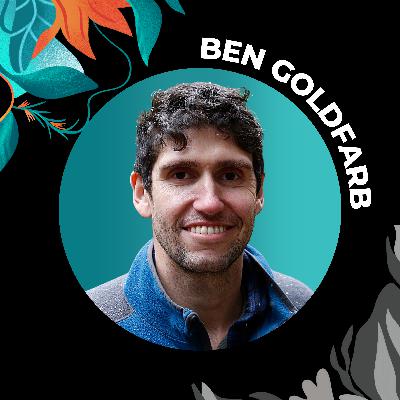

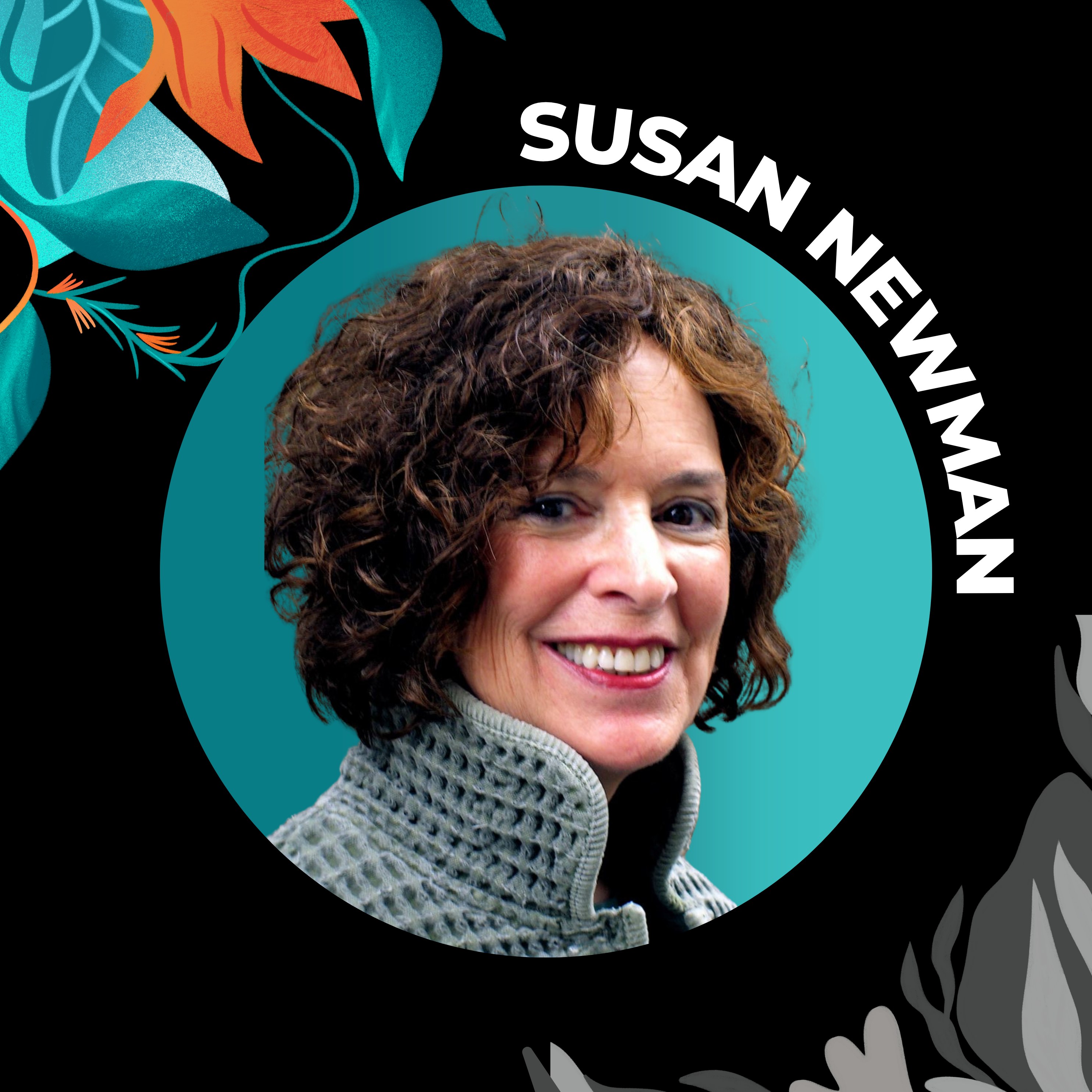
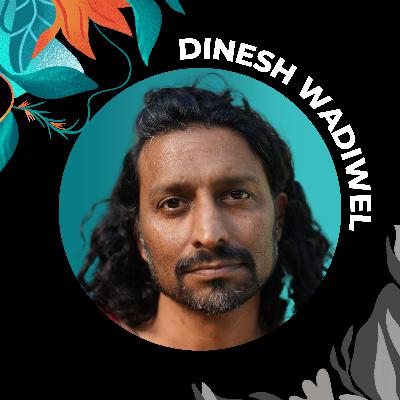

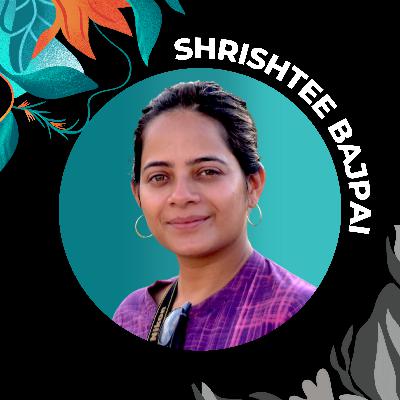



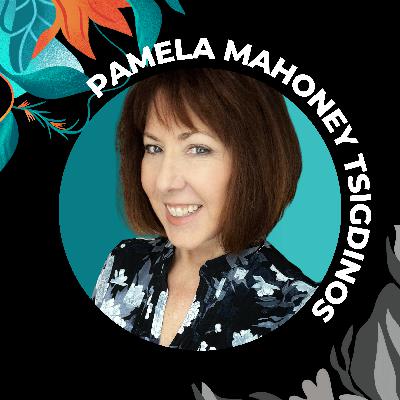




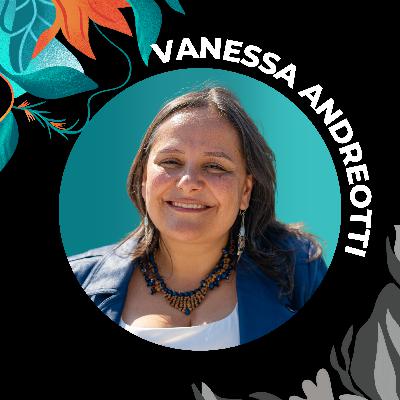

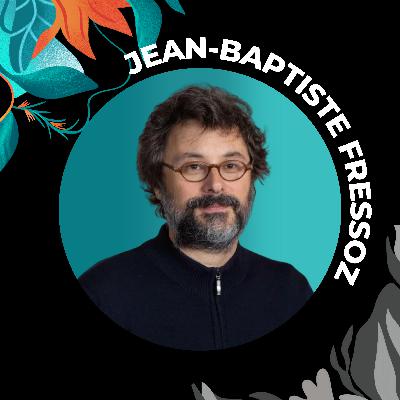






Well, you guys won me back with this ep. The fastest and most humane way to begin to reduce the human population is universal equality AND universal access to birth control. I'm a big fan. Thank you for your critically important work.
You guys are doing important work, and I greatly appreciate you. I am listening from the beginning of the series, and am on episode 3. I have to say I am sadly shocked, dismayed, and angry that you have not yet mentioned birth control. Give women universal access to birth control. That will begin solving overpopulation immediately. This is not just another option among a group of tactics. Universal birth control will reduce the population IMMEDIATELY. Please respond and tell me why you haven't yet brought this up. It's it a conscious decision? Will I hear about it in episode 4? Did I just make a fabulous suggestion that no one had thought of? You guys should be screaming "birth control" from the mountaintops. I know I am. My focus is on gaining equality for all people under the law, including children. Women's reproductive rights are an absolute no-brainer in the fight to reduce population. Again, I make this comment with due respect and I truly appreciate your goals.
This is all discredited malthusianism. More population leads to better living standards. Meanwhile, I'm still waiting to meet an environmentalist willing to sacrifice his or her own standard of living.